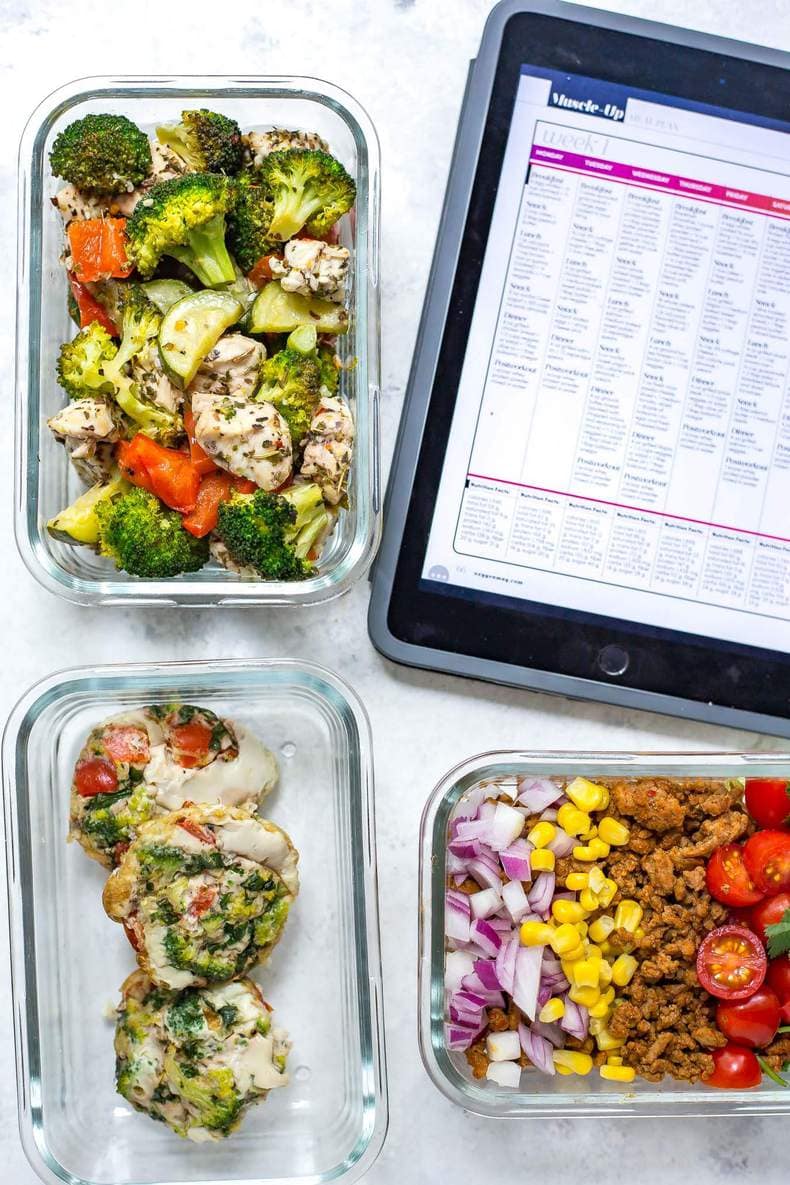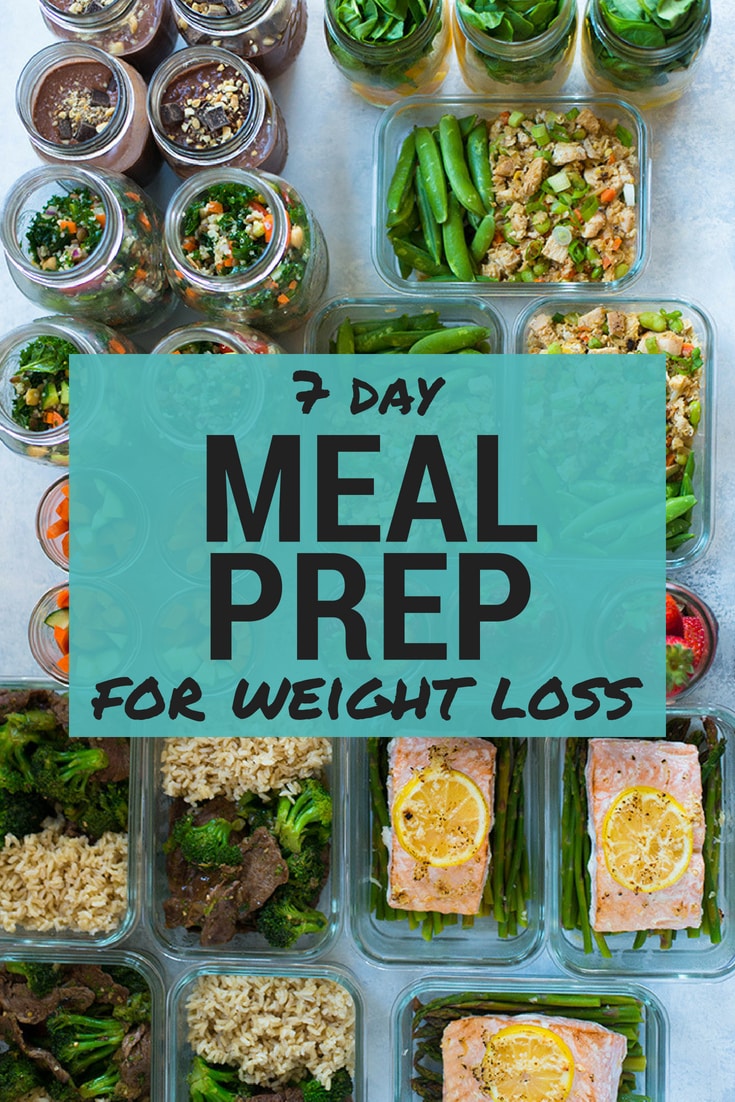
How to Lose Weight When You’re Busy and Stressed
Written: Editor | April 18, 2023

Tips for Eating Healthy
Meal planning and preparation
When it comes to maintaining a healthy diet, one of the most effective strategies is meal planning and preparation. This involves taking the time to plan out your meals for the week ahead, and then preparing them in advance. By doing this, you can ensure that you have healthy, balanced meals readily available, even when you're busy. Here are some tips to get started:
- Set aside time each week to plan your meals. Look for recipes that are nutritious, easy to make, and fit into your schedule.
- Make a shopping list of all the ingredients you'll need for your meals. This will help you stay organized and avoid unnecessary trips to the grocery store.
- Cook in bulk. Prepare larger portions of your favorite recipes and store leftovers in individual portion sizes. This way, you'll have healthy meals ready to grab and go throughout the week.
- Use meal prep containers or BPA-free storage containers to keep your meals fresh and easy to transport.
- Don't forget to include a variety of fruits and vegetables in your meal plan. These are essential for a balanced diet and provide important nutrients.
Healthy snack options for on-the-go
When you're constantly on the go, it can be tempting to grab a bag of chips or a sugary snack. However, there are plenty of healthy snack options that are convenient and satisfying. Here are a few ideas:
- Fresh fruits and vegetables: These are easy to pack and provide essential vitamins and minerals. Carrot sticks, apple slices, and grapes are great choices.
- Nuts and seeds: Almonds, walnuts, and pumpkin seeds are portable and packed with healthy fats and protein.
- Greek yogurt: Opt for single-serve containers of Greek yogurt, which is high in protein and calcium.
- Homemade energy bars: Make your own energy bars using ingredients like oats, nuts, and dried fruits. These are great for a quick, nutritious snack.
Mindful eating and portion control
Mindful eating involves paying attention to your hunger and fullness cues, as well as the taste and texture of the food you're eating. This can help you make healthier food choices and prevent overeating. Here are some tips to practice mindful eating:
- Slow down and savor your food. Take the time to chew your food thoroughly and enjoy each bite.
- Listen to your body's hunger and fullness signals. Eat when you're hungry and stop when you're satisfied, but not overly full.
- Use smaller plates and bowls to help control portion sizes. Research shows that we tend to eat more when served larger portions.
- Avoid distractions while eating, such as watching TV or using your phone. Focus on the meal in front of you and fully engage with the experience of eating.
By incorporating these tips into your busy lifestyle, you can maintain a healthy diet and achieve your weight loss goals. Remember to be consistent and prioritize your health, even when things get hectic.

Incorporating Physical Activity
Finding time for exercise in a busy schedule
In today's fast-paced world, finding time to exercise can be challenging, especially for busy individuals. However, prioritizing physical activity is crucial for maintaining a healthy lifestyle and managing weight. Here are some tips for fitting exercise into a hectic schedule:
-
Schedule it in: Treat exercise like any other appointment and block off dedicated time for it in your daily schedule. Whether it's early morning, during lunch breaks, or in the evenings, find a time that works best for you and stick to it.
-
Combine activities: If time is limited, multitask by incorporating physical activity into your daily routine. For example, take the stairs instead of the elevator, park farther away from your destination and walk, or do bodyweight exercises while watching TV.
-
Break it up: Instead of trying to find long stretches of time for exercise, break it up into shorter, more manageable sessions throughout the day. Even 10-15 minutes of activity can add up and provide health benefits.
-
Utilize technology: Take advantage of fitness apps, online workout classes, or YouTube videos that offer guided workouts. This way, you can exercise at home or anywhere with a reliable internet connection, saving travel time to and from the gym.
Effective workout routines for busy individuals
For busy individuals, it's essential to choose workout routines that are time-efficient yet effective. Here are a few options to consider:
-
High-intensity interval training (HIIT): HIIT workouts involve short bursts of intense exercise followed by brief recovery periods. These workouts can be completed in as little as 20 minutes and provide a significant calorie burn.
-
Strength training: Focusing on compound exercises that work multiple muscle groups simultaneously can maximize efficiency. Incorporate exercises such as squats, lunges, push-ups, and planks into your routine.
-
Circuit training: Circuit training involves moving quickly from one exercise to another with minimal rest in between. This allows you to work multiple muscle groups while keeping your heart rate up.
Incorporating physical activity into daily activities
Aside from scheduled workout sessions, finding ways to incorporate physical activity into your daily routine can make a difference. Here are some ideas:
-
Active commuting: Consider walking or biking to work if feasible. If driving is necessary, park farther away to add extra steps to your daily routine.
-
Take active breaks: Instead of sitting for extended periods, integrate short bursts of physical activity throughout the day. Stand up and stretch, do a set of squats or push-ups, or take a brisk walk during breaks.
-
Make it a family affair: Involve your family or friends in physical activities such as weekend hikes, bike rides, or playing a sport together. Not only will you be spending quality time, but you'll also be staying active.
Remember, consistency is key when it comes to exercise. Start small and gradually increase intensity and duration as you become more comfortable. Finding creative ways to incorporate physical activity into a busy schedule will contribute to overall health and weight management.

Prioritizing Sleep and Stress Management
The impact of sleep and stress on weight loss
Losing weight can be challenging, especially when you're busy and constantly juggling multiple responsibilities. However, prioritizing sleep and stress management can greatly contribute to your weight loss journey.
Research has shown that lack of sleep can negatively affect weight loss efforts. When you're sleep-deprived, your body produces more ghrelin (the hunger hormone) and less leptin (the hormone that signals fullness). This imbalance in hormones can lead to increased cravings and overeating. Moreover, sleep deprivation often results in fatigue and low energy levels, making it harder to engage in physical activity and maintain a consistent exercise routine.
Similarly, chronic stress can hinder weight loss progress. In response to stress, your body releases cortisol, a hormone that promotes fat storage, particularly around the abdominal area. Moreover, stress can lead to emotional eating, as many individuals turn to food as a coping mechanism.
Strategies for improving sleep quality
To improve sleep quality, establish a regular sleep schedule by going to bed and waking up at the same time every day. Create a relaxing bedtime routine that includes activities such as reading, taking a warm bath, or practicing relaxation techniques like deep breathing or meditation. Ensure your sleep environment is comfortable and free from distractions, such as excessive noise or bright lights. Avoid consuming caffeine, nicotine, or alcohol close to bedtime, as these substances can interfere with sleep quality.
Stress management techniques for busy individuals
Managing stress is crucial for weight loss success. Incorporate stress-reducing activities into your daily routine, such as exercise, yoga, or mindfulness practices. Prioritize activities that you enjoy and that help you relax. Delegate tasks when possible to alleviate some of the workload. Set boundaries and learn to say no to additional responsibilities that may cause unnecessary stress.
Additionally, practicing time management can help reduce stress levels. Prioritize tasks based on importance and urgency, and break larger tasks into smaller, more manageable steps. Take regular breaks throughout the day to recharge and avoid burnout.
In conclusion, prioritizing sleep and stress management is essential for weight loss, even when you're busy. By getting adequate sleep, managing stress levels, and implementing strategies to improve sleep quality, you can create a healthier lifestyle that supports your weight loss goals. Remember, it's not just about finding the time to exercise or following a strict diet – taking care of your mental and emotional well-being is equally important.

Conclusion
In today's fast-paced world, it's easy to neglect our health and well-being when we're busy. However, losing weight doesn't have to be an impossible task, even when you have a hectic schedule. By finding balance, making healthy choices, and setting realistic goals, you can achieve weight loss success. Remember to consult with a healthcare professional before starting any weight loss program to ensure it is safe and appropriate for you.
Finding balance and making healthy choices
When you're busy, it can be challenging to find time for exercise and prepare healthy meals. However, it's crucial to prioritize your health. Here are some tips to help you find balance and make healthy choices:
-
Schedule your workouts: Treat your workouts as important appointments and schedule them into your calendar. Find activities that you enjoy and can stick to consistently, whether it's going for a walk during lunch breaks or joining a fitness class.
-
Plan and prep your meals: Spend some time each week planning and preparing healthy meals and snacks. This will help you avoid impulsive and unhealthy food choices when you're busy.
-
Stay hydrated: Drinking enough water is essential for overall health and weight loss. Keep a water bottle with you throughout the day to remind yourself to stay hydrated.
Setting realistic goals for weight loss
When you're busy, it's crucial to set realistic goals that you can achieve. Here are some tips for setting achievable weight loss goals:
-
Start small: Break your weight loss journey into smaller, more attainable goals. For example, aim to lose 1-2 pounds per week instead of setting a lofty goal of losing 10 pounds in a month.
-
Focus on healthy habits: Instead of solely focusing on the number on the scale, focus on developing healthy habits, such as eating balanced meals and being physically active.
-
Celebrate your progress: Celebrate each milestone along the way, whether it's fitting into an old pair of jeans or reaching a certain number of workouts in a week. Recognize and reward yourself for your accomplishments.
Frequently Asked Questions about losing weight when busy
Here are some commonly asked questions about losing weight when you have a busy schedule:
-
Can I lose weight without exercising? While exercise is beneficial for weight loss, it's not the only factor. By making healthy dietary choices and finding ways to incorporate physical activity into your daily routine, you can still achieve weight loss.
-
How can I find time to exercise when I'm busy? Look for opportunities to be active throughout the day, such as taking the stairs instead of the elevator, parking your car further away, or doing quick workouts during breaks.
-
What are some quick and healthy meal options for busy people? Opt for easy-to-prepare meals like salads, stir-fries, and smoothies. Preparing meals in advance and utilizing meal prep services can also save time and ensure nutritious choices.
Remember that losing weight takes time and consistency. Be patient with yourself, stay motivated, and seek support from friends, family, or professionals when needed.



